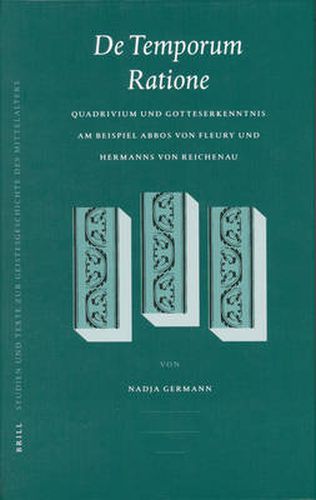Readings Newsletter
Become a Readings Member to make your shopping experience even easier.
Sign in or sign up for free!
You’re not far away from qualifying for FREE standard shipping within Australia
You’ve qualified for FREE standard shipping within Australia
The cart is loading…






This study examines the scientific interests and rationality which find expression in the quadrivial sources of the 9th to 11th centuries, arguing on this basis for the existence of a ‘discovery of nature’ already prior to the 12th century. It focuses on the theme of ‘time’, exemplified by Abbo of Fleury’s Computus, as well as Hermann of Reichenau’s Epistola de quantitate mensis lunaris, Abbreviatio compoti and Prognostica. The systematic and historical background of the study is established through analysis of Alcuin’s De vera philosophia, Bede’s De temporum ratione and the computistic-astronomical anthologies which were the predominant genre during this period. The volume is complemented by fourteen illustrations and an appendix including Hermann’s heretofore unedited texts, the Abbreviatio compoti and Prognostica.
$9.00 standard shipping within Australia
FREE standard shipping within Australia for orders over $100.00
Express & International shipping calculated at checkout
This study examines the scientific interests and rationality which find expression in the quadrivial sources of the 9th to 11th centuries, arguing on this basis for the existence of a ‘discovery of nature’ already prior to the 12th century. It focuses on the theme of ‘time’, exemplified by Abbo of Fleury’s Computus, as well as Hermann of Reichenau’s Epistola de quantitate mensis lunaris, Abbreviatio compoti and Prognostica. The systematic and historical background of the study is established through analysis of Alcuin’s De vera philosophia, Bede’s De temporum ratione and the computistic-astronomical anthologies which were the predominant genre during this period. The volume is complemented by fourteen illustrations and an appendix including Hermann’s heretofore unedited texts, the Abbreviatio compoti and Prognostica.